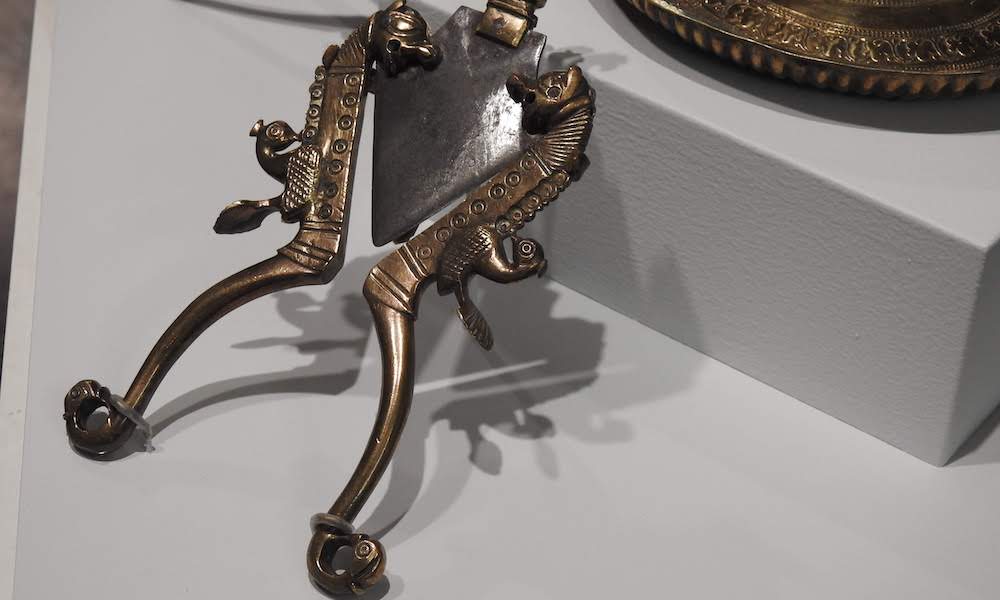The Phoebe A. Hearst Museum of Anthropology at the University of California, Berkeley is exploring the world of drugs in an exhibit called Pleasure, Poison, Prescription, Prayer: The Worlds of Mind-Altering Substances. The school’s faculty members and undergraduate students contributed research for the exhibition, which calls into question why substances such as sugar and caffeine are socially acceptable, while others like peyote and opium are illegal and stigmatized.
Pleasure, Poison, Prescription, Prayer features items from the Hearst Museum’s permanent collection of historical objects that have traditionally produced, processed, stored, or were used for consuming a variety of substances, including but not limited to alcohol, tobacco, cannabis, betel nut, kava, and coca. The exhibition showcases objects ranging from a pre-Incan portrait jar from Peru and a Hookah from 1960s India to a 20th century Japanese sake gourd. Other objects include elaborate snuff bottles, water pipes, and specialty scissors used for cutting betel nuts, which have historically been used as a stimulant.
Betel Scissors/ Gavin LeeConcerning the significance of the exhibition’s title, Katie Fleming, Gallery Manager & Education Coordinator, and Adam Nilsen, Head of Education & Interpretation, tell High Times: “While each of these substances has a unique history and cultural provenance, one thing they have in common is the multifarious role they play in society. Each substance highlighted in the exhibit has the potential to be used recreationally to provide pleasure, can be poisonous if consumed in excess, has a medicinal function or has the capacity to heal, and plays a role in spirituality or religious practice. We wanted to highlight the often-overlooked fact that there are a lot of gray areas when it comes to how people use or judge substances.”
Some of the oldest objects in the exhibit are a collection of 3000-year-old Ancient Egyptian beer cups. “Beer …
Read More
Author: Tanja M. Laden / High Times


